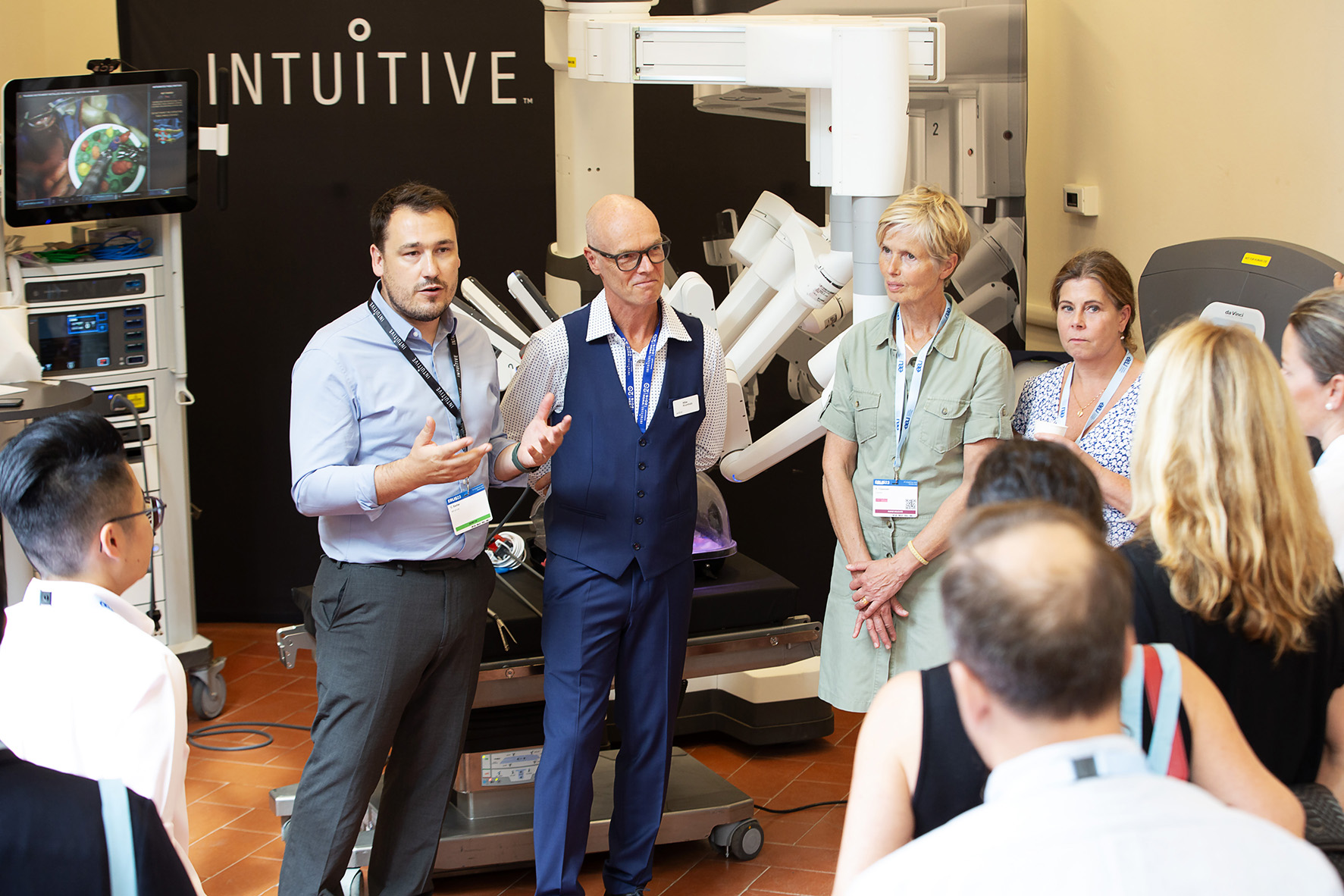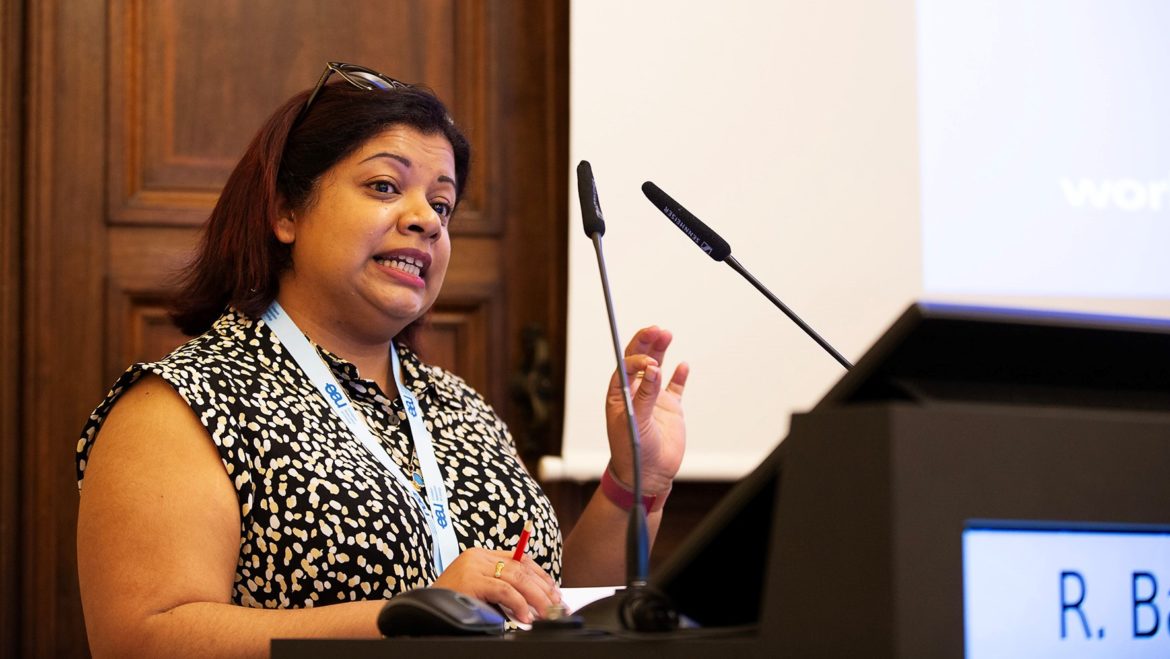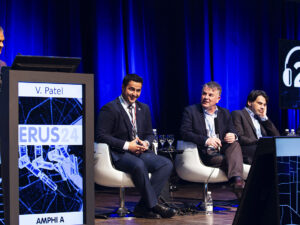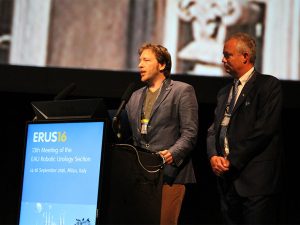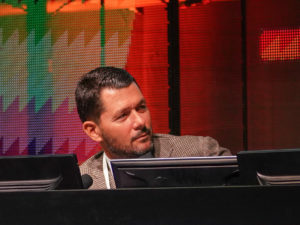ERUS23 in Florence was joined by the ERUS-EAUN meeting for nurses (looking to get) involved in robotic urology. The day-long programme included a morning of presentations and discussions, followed by an afternoon of hands-on training opportunities for interested delegates.
Over 30 people attended today’s meeting in Florence, part of the wider ERUS23 Meeting. We spoke to the Chair of the EAUN Special Interest Group for Endourology and Robotics, Ms. Anna Mohammed (London, GB) who also chaired the meeting in Florence.
Why is it the robotics meeting in particular that attracts a nursing component?
It’s clear that robotics is here to stay. It’s also a very dynamic field, there are a lot of new systems coming out. I also think that a large part of it is that there’s an appetite to get more knowledge, to learn more. We are coming out of COVID, people have re-assessed, and they might have new skills they want to learn.
Compared to other fields, robotics can offer a different or expanded role for nurses. Urologists were early adopters, and together we’ve paved the way.
What were some key topics discussed and what do you hope the audience takes away?
We want to underline how vital the role of the nurse is, or can be in robotic urology. The surgeons and other speakers at this meeting all emphasise this. We tend to undersell ourselves. The research backs up the importance of the role of the nurse, now let’s promote what we’re good at.
Looking at Europe as a whole there must be a huge range of levels of responsibility for nurses in robotic surgery.
Yes, in some countries, nurses are very closely involved in surgery, in others not so much. When we first started out, I was one of the few robotic assistants. Today we had around a dozen in the room. In only in a few years it’s grown tremendously.
But there’s a real disparity. In some countries it’s really taken off, it’s become standardised, and they’ve got guidelines. In other countries it’s slower. If we’re resilient, we’ll get there. This process wasn’t fast in the UK either, despite how far we’ve come now.
It seemed some of the talks were very general; for instance the experiences in setting up a new robotic department.
That was a deliberate choice. Some participants are from departments who are just getting their first robots and are orienting themselves. What should they look out for? How does a new robot fit into the bigger department picture? We want to show people what can be achieved, and send them home with the idea “I can do this! This is something we could use.”
In general, how did you feel this edition of ERUS-EAUN went?
Overall, I’m really pleased with how today’s sessions went! We had some good interaction and a lot of representatives from different countries bringing their experiences to the table. A setting like Florence undoubtedly helps to bring people to a meeting, and the previous edition was held at the height of COVID, which meant that we were more dependent on a smaller local audience.
This afternoon, we have Hands-on Training sessions planned, which will undoubtedly create even more interaction. Some participants already had some very specific requests for the tutors!
